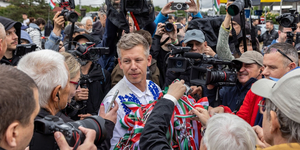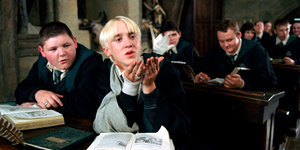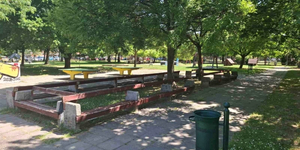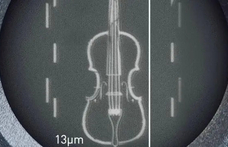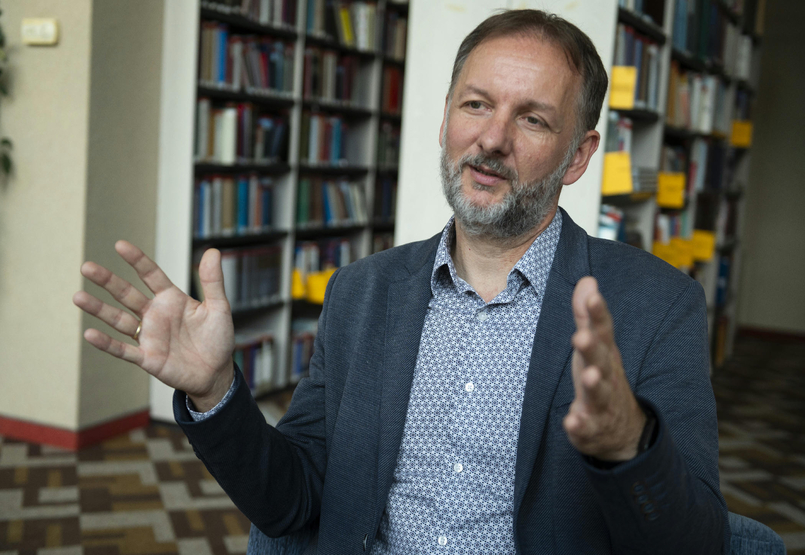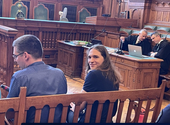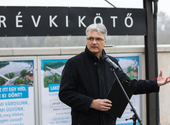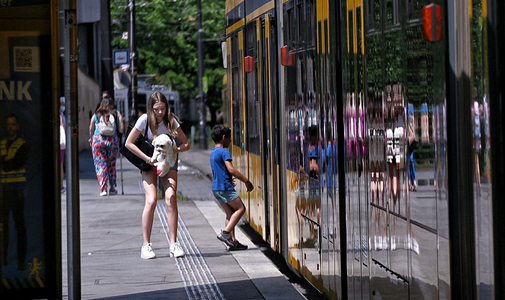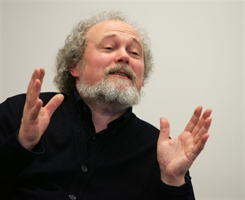 © Horváth Szabolcs |
HVG: It seems you brim with lawyerly phrases the average citizen can barely understand. When the Socialists made a formal complaint about Fidesz's hacker break-in into their computers, would it not have been easier to say: "Out of time. We cannot deal with this." PSZ: The complaint asked for an opinion. We knew it was too late, but certain issues arose that helped the Commission clarify its own role. In our statement, we said certain activities were unwelome during a campaign, and though we were not competent to establish the facts in this instance, we pointed out, in abstracto, that breaking in to computer systems without authorisation was illegal.
When you were appointed, many remembered that you delivered a protest speech when the statues of Marx and Engels were removed from parliament. We remember little of the speech itself, but one thing is sure: you physically resemble Marx more than almost anyone else in Hungary. Did you consciously choose this style? It was not conscious, though I be happy to imitate Marx, since I am a believer in Marxian social criticism. This does not mean, as some have claimed, that I am a Marxist-Leninist.
So what is your world view?
People who call themselves Marxist-Leninists think of me as a social liberal. I think I am neither. As a citizen of Budapest, I was offended by the removal of György Segesdi's outstanding cubist sculpture. I thought it barbaric, just as it was when churches were converted into stables or storehouses.
But admit at least that you have campaigned for the Red Star to be legalised. If the right does not win the elections, then some will be pointing at you, accusing you of bias or fraud.
More than 50 European Parliament.members wear that symbol. It is allowed there, but forbidden in Hungary. Will they be arrested if they come to Budapest?
There would seem to be no disagreement between you and your grandfather, an influential philosopher who played a role in the education policy of the early Kádár period. But what does he say about your overseeing a democratic election? He is a realist. He never influenced my career decisions. He retired at 70, setting a good example. You can only retire at 70 or 75 if you are prepared to accept a quiet old age. He listens to music, he swims. I hope my old age will be as admirable.
The second part of the Portrait (Oldaltörés)
But you seem to be heading in the opposite direction. As a teacher, you met people who went on to play influential political roles. You taught the Fidesz boys, even played football with them. Do you see similarities between those football matches and the style of politics today?
We were a good teacing team: Kukorelli, Karcsi Bárd, Szigeti, Bihari, Kéri. And we did indeed play football against Áder and Orbán. It is true that Orbán was an impressive young lad - he commanded respect among the others. But I draw no confusions from this.
How could you? But this caution can hardly make people notice you. You seem uninterested in academic or state awards. You would say this was proof of your independence. You can see it like that. My biggest award was the national academic prize I won as a 25-year-old student. But why is that a problem? Does everyone has gongs? I have never scanned the lists of medals in the newspapers on national days.
But you won awards to conduct research in France often enough. What of the most recent, two years ago. Would you tell us what you can learn about the philosophy of law in Nice? I admit it: I did occasionally go down to the sea to swim and watch the sunset. And I visited beaches on the Cote d'Azur. But I also read material which I used in my recently published book Watching Global Systems.
Did you find anything that might take Hungarian political research in a new direction?
In my study I reached my own propositions by contradicting certain theoretical positions. My books Organised Capitalism and Watching Global Systems are real Made in Péter Szigetis. I have my own synthetic understanding of law, which I set out in a monograph. For the past two years I have been researching the state of the republic's legal system between 1989 and 2004. This will be a complex theoretical, constitutional, sociological and legal study.
András Lindner - Zoltán Horváth

